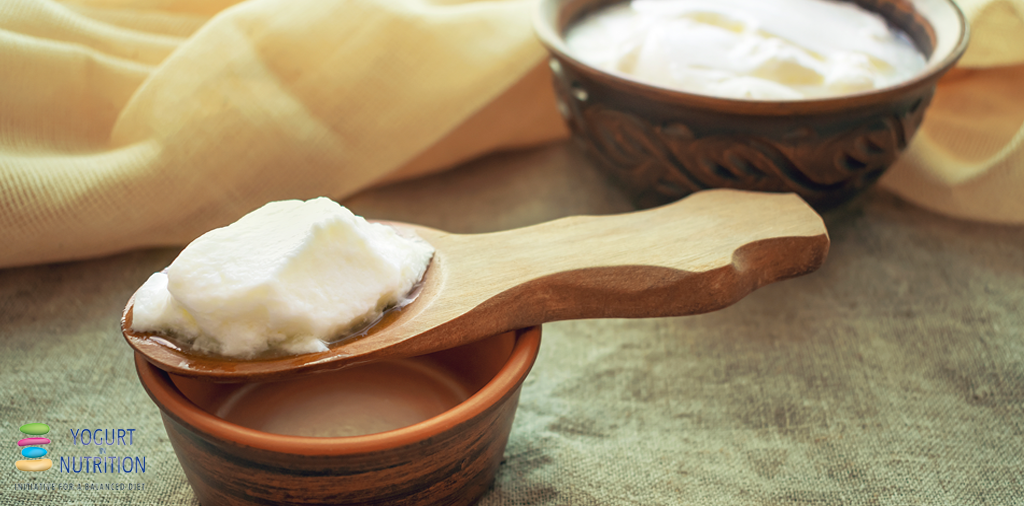A camel roams the Sudanese desert. On its back it carries a leather bag made of goat’s skin nestling in wet grass. The bag contains a liquid that’s continuously slopped around by the camel’s jerky movement. The liquid contains a secret ingredient with a mysterious power…
It’s no magic potion. Known as gariss, it’s made from camel’s milk and it’s slowly fermenting, a process aided by being shaken as the camel walks. It is just one of a wealth of fermented dairy products traditionally made in Africa. Their secret ingredient believed to have health-giving powers? Microbes – millions of them.
Fermented dairy foods, typically yogurts and yogurt-like products, are a treasure-trove of probiotic microorganisms, nutrients and biologically active ingredients that could play an increasingly important role in the health of people across Africa, say the authors of this review. Harnessing the health potential of these products could help tackle several of the challenges facing Africa today, from poor nutrition to chronic and infectious diseases, the authors believe.
Fermentation has been used for centuries in Africa as a way of preserving milk and other foods in a climate where it can be difficult to keep them fresh. Milk is the most widely consumed animal protein in Africa, and fermentation provides a long-lasting alternative while improving the nutritional quality, digestibility and safety of milk. It also provides tasty foods during dry seasons when fresh milk may bot be available, say the authors.
‘In Africa, fermentation of food is one of the oldest methods of food processing and preservation and many traditional food processing techniques have been handed down from generation to generation for centuries.’ – Agyei D et al, 2019.
How fermented dairy products are made in Africa
Fermented dairy foods in Africa tend to be home-made using age-old recipes handed down from generation to generation. The milk comes from cows, goats, sheep, buffalo or camels and often the process starts with sifting out the animal fur and other debris that have fallen in during milking. Fermentation tends to be spontaneous because of the microorganisms that are in the raw milk, rather than using of specific starter cultures as elsewhere in the world.
So it comes as no surprise that the African fermented dairy products harbour a rich and diverse supply of microbes, especially lactic acid bacteria. Often they also contain yeasts, which may contribute to fermentation.
Fermented dairy products are rich in nutrients
Milk and the fermented dairy products made from it are rich in macro- and micronutrients and so play an important role in nutrition in people living in Africa where diets may not otherwise contain enough animal-based foods. High quality proteins, calcium, phosphorus, magnesium, vitamins A, D, E, K, and B are among the nutrients present in milk, and the fermentation process enhances the variety and concentration of many of these key nutrients, the authors explain.
Fermented dairy products can be suitable in lactose intolerance
Lactose intolerance is common among adults around the world, causing symptoms such as abdominal cramps, bloating, flatulence, constipation, and diarrhoea after the consumption of lactose. But fermented dairy products tend to be well tolerated by people with lactose intolerance because some of the lactose originally in the milk is converted into lactic acid during fermentation, the authors say.
More health benefits may come from probiotics and bioactive compounds
Research suggests that health benefits from both commercially made and home-made African fermented milk products relate to the probiotic bacteria used in the fermentation process.
These probiotics may help stimulate the growth of ‘good’ microorganisms in the gut, and may be associated with improved gut health and healthier natural defence mechanisms. They may also prove to help reduce blood pressure and improve cholesterol levels, the authors say.
‘With proper research and development, probiotics from indigenous fermented dairy products could be used in dietary interventions to help mitigate some of the diseases encountered in … [the] public health challenge.’ – Agyei D et al, 2019.
Additional health benefits may prove to come from biologically active components in fermented dairy foods, including bioactive peptides made by the lactic acid bacteria, the authors believe. These peptides may be associated with several health-promoting effects including antimicrobial, cholesterol-lowering and antioxidant properties. They may be found to play a role in preventing diet-related chronic diseases, say the authors.
How can Africa harness the potential of its fermented dairy foods?
People in Africa are drinking more milk and milk products than in the past and this is good news for the continent, heralding better public health, nutrition, food security, and economic growth, say the authors. But in Africa, fermented dairy produces vary widely in their raw milk quality and starter microbe cultures – so harnessing the full potential of fermented dairy products would require ways of ensuring their quality and safety, the authors point out.
Studies are also needed in people across Africa to establish the health benefits of consuming these traditional fermented dairy products, the authors conclude.



